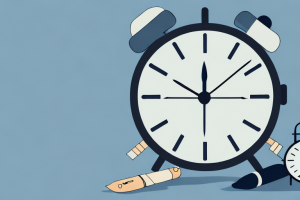Understanding the importance of sleep in retirement
Sleep plays a vital role in the overall health and well-being of individuals, regardless of their age. However, for retirees, maintaining a healthy sleep routine becomes even more crucial. Adequate and quality sleep is known to have numerous benefits, including supporting cognitive function, enhancing emotional well-being, and boosting immune system function. Furthermore, sufficient sleep is essential for optimal physical and mental health as one transitions into retirement.
The impact of sleep on the health and well-being of retirees
Research has consistently shown that inadequate sleep can lead to a range of health issues for retirees. These can include higher rates of chronic conditions such as diabetes, cardiovascular disease, obesity, and depression. Poor sleep quality has also been linked to an increased risk of falls and accidents among older adults.
Moreover, insufficient sleep can impair cognitive abilities such as memory, attention, and decision-making skills, making it harder to perform daily activities and enjoy retirement to its fullest. Additionally, retirees who experience sleep disturbances often report higher levels of fatigue, daytime sleepiness, and a diminished overall quality of life.
Research-backed recommendations for optimal sleep duration in retirement
While individual sleep needs can vary, several studies suggest that most retirees should aim for an average of seven to eight hours of sleep per night. This duration allows for the necessary restorative processes to occur, supporting physical and mental well-being. However, it’s important to note that some individuals may naturally require more or less sleep.
It’s also worth considering the concept of sleep debt, which refers to the cumulative effect of insufficient sleep over time. Retirees who consistently get fewer hours of sleep may accumulate sleep debt and may benefit from additional sleep to restore their energy levels.
Age-related changes in sleep patterns for retirees
As we age, our sleep patterns tend to change. Older individuals often experience more fragmented sleep with frequent awakenings throughout the night. This can be attributed to age-related changes in the structure and function of sleep-promoting brain regions.
Retirees may also find it challenging to maintain a regular sleep schedule due to reduced demands and increased flexibility in daily routines. However, establishing consistent sleep and wake times can help regulate the internal body clock, promoting better sleep quality and overall sleep-wake patterns.
Factors influencing sleep quality and duration in retirement
Various factors can affect the sleep quality and duration of retirees. These include physical health conditions, medications, lifestyle choices, and environmental factors.
Physical health conditions such as chronic pain, arthritis, sleep apnea, and restless leg syndrome can significantly impact sleep quality for retirees. It’s important to address and manage these conditions to improve sleep outcomes.
Certain medications, such as those for blood pressure or mental health, may also interfere with sleep. If sleep disturbances are experienced as a side effect of medication, consulting with a healthcare professional to explore alternative options or adjustment of dosage timing might be beneficial.
Lifestyle choices, such as alcohol consumption, caffeine intake, and evening screen time, can disrupt sleep patterns. Retirees should be mindful of their habits and consider adopting sleep-friendly practices, such as limiting stimulants and establishing a relaxing pre-sleep routine.
Creating a comfortable sleep environment is also essential. Retirees should ensure their bedroom is quiet, dark, and at a comfortable temperature, promoting a restful sleep environment. Investing in a supportive mattress and pillows can also contribute to better sleep quality.
Exploring the link between inadequate sleep and common health issues in retirees
Individuals who consistently lack sufficient sleep are at higher risk of developing various health issues, including cardiovascular disease, diabetes, obesity, and mental health disorders such as depression and anxiety.
Poor sleep quality and duration have been associated with increased inflammation in the body, a known risk factor for chronic diseases. Additionally, sleep deprivation can disrupt the balance of hormones involved in appetite regulation, potentially leading to weight gain and metabolic imbalances.
Inadequate sleep also affects the brain’s ability to regulate emotions, leading to mood disturbances such as irritability, emotional instability, and an increased risk of developing depression or anxiety disorders. Prioritizing sleep can help mitigate these risks and promote better overall health outcomes in retirement.
Tips and strategies for improving sleep habits during retirement years
Retirees can take proactive steps to improve their sleep habits and ensure better quality sleep. Here are some practical strategies:
- Establish a regular sleep schedule and stick to consistent sleep and wake times, even on weekends.
- Create a calming bedtime routine that includes activities such as reading, taking a warm bath, or practicing relaxation techniques like deep breathing or meditation.
- Ensure the bedroom is free of distractions, such as electronic devices or excessive noise.
- Avoid consuming caffeine or alcohol close to bedtime, as they can disrupt sleep patterns.
- Engage in regular physical activity during the day, as exercise can promote better sleep.
- Take time to unwind and relax before bed, avoiding stimulating activities or stressful thoughts.
- Consider using techniques such as white noise machines, earplugs, or eye masks to create a tranquil sleep environment.
- Discuss any sleep concerns with a healthcare professional who can provide guidance and potential solutions.
The role of physical activity in promoting better sleep for retirees
Engaging in regular physical activity is beneficial for sleep quality, particularly for retirees. Exercise can help regulate the sleep-wake cycle, reduce stress levels, and enhance overall physical and mental well-being.
It’s important to find activities that are enjoyable and suitable for individual fitness levels. Walking, swimming, yoga, and tai chi are low-impact options that can be easily incorporated into retirement routines. However, it’s advisable to consult with a healthcare professional before starting any new exercise program or making significant changes to existing routines.
Creating a comfortable and conducive sleep environment during retirement
Designing a sleep-friendly environment is essential to promote quality sleep. Retirees can consider the following tips:
- Invest in a supportive mattress and pillows that suit individual comfort and health needs.
- Ensure the bedroom is dark, quiet, and at a comfortable temperature.
- Use blackout curtains or an eye mask to block out excessive light.
- Consider using a sound machine or earplugs to minimize noise disruptions.
- Keep electronic devices out of the bedroom or set them to “do not disturb” mode to avoid sleep disruptions caused by notifications or blue light exposure.
Sleep disorders commonly experienced by retirees and how to manage them
Retirees may be more prone to certain sleep disorders, including sleep apnea, insomnia, restless leg syndrome, and periodic limb movement disorder. If individuals suspect they have a sleep disorder, seeking professional evaluation and diagnosis is important.
Treatment options for sleep disorders can vary depending on the specific condition. For example, sleep apnea may be managed with continuous positive airway pressure (CPAP) therapy, while insomnia may benefit from cognitive-behavioral therapy for insomnia (CBT-I). A healthcare professional can provide guidance and recommend appropriate treatment based on an individual’s needs.
The benefits of establishing a regular sleep routine in retirement
Establishing a regular sleep routine offers numerous benefits for retirees. Consistency in sleep and wake times helps regulate the body’s internal clock, making it easier to fall asleep and wake up feeling refreshed. It can also improve sleep quality by optimizing the timing of essential sleep stages.
A regular sleep routine can also enhance overall time management during retirement. By ensuring sufficient sleep, retirees are more likely to have increased energy levels, improved cognitive function, and a better ability to engage in activities and hobbies during waking hours.
Exploring alternative methods to enhance sleep quality for retirees
In addition to healthy sleep habits, retirees can explore alternative methods to enhance sleep quality:
- Relaxation techniques such as meditation, deep breathing exercises, or progressive muscle relaxation can help promote better sleep.
- Light therapy, which involves exposure to bright light in the morning or using specific light devices, may help regulate the sleep-wake cycle, particularly for retirees with circadian rhythm disruptions.
- Some individuals may find relief from sleep disruptions through techniques such as acupuncture or aromatherapy, although research on their effectiveness is still emerging.
The relationship between mental health and sleep patterns in retirement
Sleep and mental health are closely interconnected. Disrupted sleep can contribute to the development and exacerbation of mental health conditions such as depression and anxiety disorders.
Retirees should prioritize both their sleep and mental well-being. Seeking therapy or counseling to address any underlying mental health concerns can significantly improve sleep quality and overall quality of life during retirement.
How diet and nutrition can influence sleep quality for retirees
Diet and nutrition play a role in sleep patterns. Retirees should strive for a balanced, nutritious diet that includes fruits, vegetables, whole grains, lean proteins, and healthy fats. Consuming certain foods and beverages close to bedtime can impact sleep quality.
While individual sensitivities may vary, it’s generally advisable to avoid large meals, spicy foods, and heavy, greasy dishes close to bedtime, as they can lead to indigestion or discomfort that may interfere with sleep. Additionally, limiting caffeine and alcohol intake, particularly in the evening, can help promote better sleep quality.
Understanding the effects of stress and anxiety on retiree’s sleep patterns
Stress and anxiety can significantly impact sleep patterns, making it difficult to fall asleep or stay asleep throughout the night. For retirees, the transition into retirement and the changes that come with it may bring about increased stress or anxiety.
Engaging in stress-reducing activities such as exercise, relaxation techniques, or hobbies can help alleviate sleep-related difficulties. Additionally, practicing effective time management and setting realistic expectations during retirement can help minimize stress and promote better sleep.
The impact of technology use on retiree’s sleeping habits and how to minimize it
The use of technology, particularly electronic devices with screens, has been shown to disrupt sleep patterns. Retirees should be mindful of their technology use, especially in the evening hours leading up to bedtime.
Minimizing exposure to blue light emitted by screens can enhance sleep quality. Retirees can consider adopting the following strategies:
- Establish a digital curfew by avoiding electronic devices at least one hour before bedtime.
- Use night mode or screen filters that reduce blue light emission on devices.
- Consider reading physical books instead of e-books before bed.
- Charge electronic devices outside the bedroom to avoid temptation and reduce potential interruptions.
Sleep hygiene tips specifically tailored for retirees
Retirees can benefit from practicing good sleep hygiene. Here are some specific tips:
- Set aside time for physical exercise during the day but avoid vigorous activity close to bedtime.
- Avoid long daytime naps, as they can interfere with nighttime sleep. If a nap is necessary, limit it to a short duration and earlier in the day.
- Ensure exposure to natural light during the day, particularly in the morning hours, to help regulate the sleep-wake cycle.
- Limit fluid intake close to bedtime to minimize nighttime bathroom visits that can disrupt sleep.
- Consider investing in a comfortable mattress and pillows that provide optimal support and comfort.
Common misconceptions about sleep needs for seniors – debunked!
There are several misconceptions about sleep needs for seniors. It’s important to dispel these myths and provide accurate information:
- Myth: Older adults need less sleep. Reality: While sleep patterns may change as we age, most older adults still require similar amounts of sleep as younger adults, averaging seven to nine hours per night.
- Myth: Insomnia is a normal part of aging. Reality: While sleep disturbances can occur with age, chronic insomnia is not a normal part of the aging process and should be addressed with appropriate interventions.
- Myth: Daytime napping is harmful. Reality: Brief power naps can be beneficial for older adults, but long or late afternoon naps may disrupt nighttime sleep. Finding the right balance is crucial.
- Myth: Sleep problems cannot be treated in older adults. Reality: Sleep disturbances in older adults can often be effectively treated and managed through various strategies including lifestyle modifications, behavioral changes, and medical interventions.
How lack of sufficient sleep can affect cognitive function in retirement
Insufficient sleep can significantly impact cognitive function, making it harder to think clearly, concentrate, and remember information. Retirees who consistently lack sufficient sleep may experience difficulties with decision-making, problem-solving, and overall mental performance.
Getting enough sleep is crucial for maintaining cognitive abilities during retirement and ensuring a fulfilling and rewarding experience.
In conclusion, sleep plays a vital role in the overall health and well-being of retirees. Establishing healthy sleep habits, addressing sleep disorders, and creating a conducive sleep environment are essential steps to promote optimal sleep quality during retirement. By prioritizing sleep, retirees can enjoy the many benefits it brings, including enhanced cognitive function, improved physical health, and a better quality of life.



